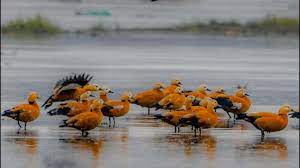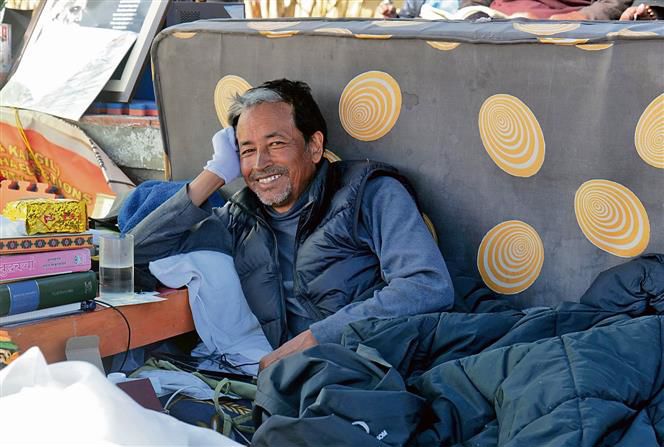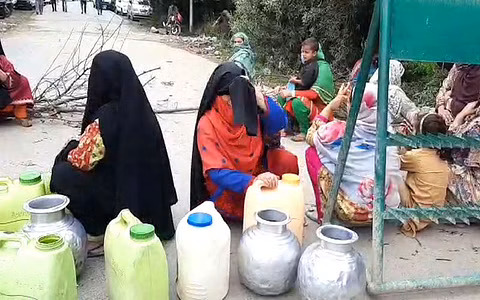Newer and rarer species of migratory birds arrived in Kashmir this season and extended their sojourn as compared to last three years, officials said.
The latest annual waterbird census (AWC) in the Himalayan valley has revealed that the wetlands of the region provided a pleasant stay to the winged guests from Europe, Japan, China and Central Asia.
“We are still compiling the census figures but overall, we saw about 12 lakh to 13 lakh birds in Kashmir this time, a figure higher than the last three years,” said Ifshan Dewan, wildlife warden, wetlands.
The official said unlike last year, when the birds had left early owing to warm temperatures, they stayed longer this time. “Kashmir is usually a stopover for migratory birds but this year, despite a mild winter with scanty snowfall, the birds stayed, showing us that they could sustain here with congenial conditions of wetlands,” Dewan said.
She said they had been working on the restoration of wetlands, which was why the numbers rose. “It depicts that the health of our wetlands has improved in terms of water level as well as expanse. Hokura or Hokersar’s eco-restoration is underway on a major level. Birds are getting new areas to perch and live. Hygam, too, is reporting a good count of birds,” she added.
The census was conducted on February 21 simultaneously at eight protected wetlands managed by the department — Hokersar in Srinagar, Shalbough in Ganderbal, Hygam in Baramulla, Mirgund in Budgam, Chatlum in Pampore, Kranchoo, Manibugh, Freshkhoori and also in other 25 water bodies of the Valley, which harbour sizeable number of migratory birds during their winter migration. Kashmir has nearly 400 water bodies.
Among the birds that arrive here every year between October and April are mallards, greylag geese, pochards, common tails, shovelers, pintails and gadwalls. “Recently, falcated duck was also spotted in Kashmir,” Dewan said.
After 84 years, a rare species of migratory duck, clangula hyemalis, was also sighted at Wullar, Asia’s largest freshwater lake, in January. A long-tailed duck, clangula hyemalis is found in European and American continents and is on the International Union for Conservation of Nature Red List of threatened species. “The sighting of the duck is an encouraging sign,” the wildlife warden said.
Reyan Sofi, an avid bird watcher living near Hokersar, said he also visited Mirgund, Hygam and Wular this winter where he saw some rare species. “Some species like falcated duck visited the Valley’s Hokersar for the first time. They do migrate to other parts of India, but historically not here,” he added.
“As per the oral history, the then maharaja had in 1939 killed the bird in Hokersar when it was last sighted. At least five such birds were seen this year in Wular. Similarly, smew duck was also spotted after 100 years,” he claimed.
“Birders, who conducted the census, revealed that the number of birds was more than five lakh on the day of the count in Hokersar. They are now leaving as the temperatures are soaring,” said Hokersar range officer Sajid Farooq.
During the early years of militancy, the wetlands had witnessed large-scale poaching of migratory birds, which has, however, come down to a great extent now owing to heightened vigilance.
M Ashraf Kabouli, range officer of Shalbough in Ganderbal — the biggest wetland in terms of area — said the poaching has almost come down to zero in protected areas as the wetland in his domain recorded around two to 2.5 lakh birds.
“Outside the periphery of the wetland, we recovered a few guns though. There was one incident wherein a man attempted poaching inside. We caught the man, seized his gun and handed him over to police, who registered an FIR against him,” he added.
He said the water level in Shalbough this year was optimum as they opened a direct link from Anchar lake. “This time, the water level is good and will stay like this. I believe some birds will stay throughout the year,” Kabouli said.






